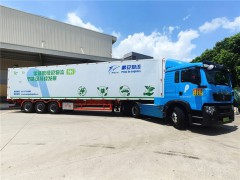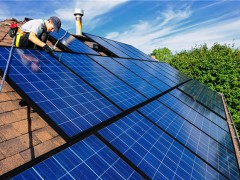據油氣新聞1月17日消息稱,國際能源署(IEA)周四在對加拿大能源政策的評估中表示,加拿大是全球第四大石油生產國,若能信守大幅減排的承諾,該國未來數年將成為全球主要石油供應國。
這是國際能源署自2015年以來的首次評估報告,報告指出,該國作為主要能源生產國、消費國和出口國的角色,為實現其脫碳目標帶來了“挑戰和機遇”。
加拿大承諾,到2030年將碳排放量在2005年的基礎上削減40%至45%,到2050年實現凈零排放。能源占加拿大國內生產總值(gdp)的10%,其大部分溫室氣體排放來自石油和天然氣行業。
IEA負責人法提赫·比羅爾贊揚了加拿大迄今為止為減少溫室氣體排放所做的努力,但表示還需要進一步的工作。
比羅爾在一次新召開的會議上表示:“在應對氣候挑戰方面,加拿大絕對是所有石油生產國中的佼佼者。我們希望看到這些戰略得到實施。”
比羅爾說,世界將需要石油和天然氣,即使目標是到2050年實現凈零排放,他希望這些生產來自那些計劃盡可能清潔生產的可靠國家,比如加拿大。
自然資源部部長喬納森·威爾金森表示,加拿大需要減少排放強度和化石燃料的消耗。
威爾金森說:“加拿大需要確保減少自己的排放,并提供將繼續使用的產品,使排放強度盡可能低。”
為了加快石油和天然氣行業的脫碳進程,國際能源署呼吁采取強有力的行動遏制甲烷排放,并加快能源技術創新的速度。
朱佳妮 摘譯自 油氣新聞
原文如下:
IEA says Canada can be key global oil supplier if emissions promises kept
Canada, the world’s fourth-largest oil producer, can be a key global supplier for years to come providing it sticks to promises to sharply cut emissions, the International Energy Agency (IEA) said on Thursday in a review of the country’s energy policies.
The IEA review, the first since 2015, noted the country’s role as a major producer, consumer and exporter of energy presented “both challenges and opportunities” for reaching its decarbonization targets.
Government has pledged to cut carbon output 40% to 45% below 2005 levels by 2030 and reach net-zero emissions by 2050. Energy makes up 10% of Canada’s gross domestic product and the majority of its greenhouse gas emissions come from the oil and gas sector.
IEA Director Fatih Birol praised Canada’s efforts so far to cut greenhouse gas emissions but said further work was needed.
“Canada is definitely in the top league of all those oil-producing countries when it comes to addressing our climate challenge,” Birol told a new conference. “We want to see those strategies being implemented.”
Birol said the world will need oil and gas even while aiming for net-zero emissions by 2050, and he would like that production to come from reliable countries with plans to produce it as cleanly as possible, like Canada.
Natural Resources Minister Jonathan Wilkinson said Canada needed to reduce both emissions intensity and consumption of fossil fuels.
“Canada needs to ensure that it’s driving down its own emissions and is providing products that will continue to be used, that are the lowest emissions intensity possible,” Wilkinson said.
To speed up decarbonization of the oil and gas sector, the IEA called for strong action to curb methane emissions and accelerate the rate of innovation in energy technology.
免責聲明:本網轉載自其它媒體的文章,目的在于弘揚石化精神,傳遞更多石化信息,并不代表本網贊同其觀點和對其真實性負責,在此我們謹向原作者和原媒體致以敬意。如果您認為本站文章侵犯了您的版權,請與我們聯系,我們將第一時間刪除。







